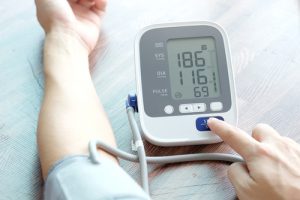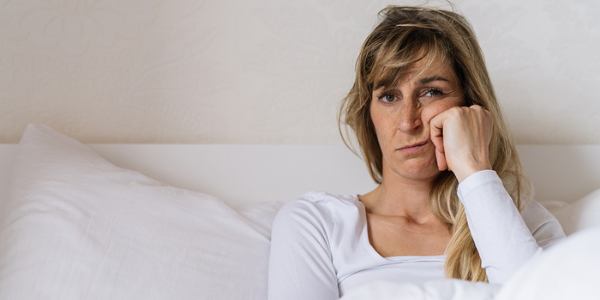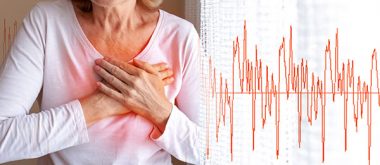Health experts believe that sleep offers the body a chance to recover and repair itself. As a result, sleep deficiency can lead to cardiovascular issues.
Insomnia is one problem that can cause you to lose sleep. Tossing and turning all night is not only frustrating; the resulting sleep deficiency can significantly affect your heart health. According to a recent study, individuals who have a genetic predisposition for sleeplessness are at an increased risk of developing stroke, heart failure and coronary artery disease. Restlessness can lead to Type 2 diabetes, high blood pressure and increased body weight. Even on their own, all these conditions are known cardiovascular disease risk factors.
Sleep Deficiency and Increased Risk of Heart Disease
Regrettably, researchers are still trying to find the connection between sleeplessness and increased risk of heart disease. But this doesn’t mean that they haven’t come up with some theories! Studies have shown that hypertension (high blood pressure) is closely associated with a lack of sleep. It’s what makes it a risk factor for this condition. Furthermore, health experts believe that this condition can lead to high levels of chemicals that are linked to inflammation. While scientists are yet to prove that inflammation can lead to heart disease, increased inflammation levels are typical among people suffering from cardiovascular diseases.
Sleep Deficiency and Blood Pressure
When you’re enjoying healthy sleep patterns, your pressure levels usually drop about 10 to 20 percent. Doctors call it nocturnal dipping and believe it has a role in heart health.
Sleeplessness due to regular disruptions or a lack of sleep contributes to lack of dipping. The implication is that your blood pressure levels will remain constant even at night. Continuously elevated blood pressure leads to hypertension. Some in the medical community believe that nighttime blood pressure levels can help predict heart issues. It explains why the absence of dipping has been tied to an increased risk of heart attack and stroke. Certain studies have linked it to reduced blood flow to the brain and the development of kidney problems.
 One of the consequences of sleep deprivation is increased daytime blood pressure. While several studies have shown it as a factor, the reality is that it doesn’t affect all people in the same manner. It’s a problem that mainly affects middle-aged individuals. Others may suffer due to the link between high blood pressure and sleep deficiency:
One of the consequences of sleep deprivation is increased daytime blood pressure. While several studies have shown it as a factor, the reality is that it doesn’t affect all people in the same manner. It’s a problem that mainly affects middle-aged individuals. Others may suffer due to the link between high blood pressure and sleep deficiency:
- Individuals suffering from risk factors linked to hypertension
- Those who work in high-stress environments for extended durations
Sleep Deficiency and Stroke
A stroke happens when blood flow to the head gets interrupted. Lack of sufficient oxygen can cause the brain cells to die off. An ischemic stroke occurs when a clot blocks an artery. Mini-strokes, also called transient ischemic strokes arise due to short-term blockages.
Studies have shown that there’s a direct correlation between restlessness and getting a stroke. Lack of sleep causes your blood pressure to rise. High blood pressure, as noted earlier, is a leading risk factor for a stroke. Furthermore, the plaque buildup in your arteries can cause a stroke or mini-stroke when combined with insufficient sleep.
Heart Health and Sleeping Too Much
While the effects of sleep deficiency tend to receive the bulk of the attention, you should note that sleeping too much could have a negative effect as well. There’s an existing link between sleeping too much (over nine hours) and cardiovascular health. Although additional research into this link is needed, health experts believe that existing health issues that lead to oversleeping could exacerbate heart issues. Therefore, the available data assists in serving as a reminder that oversleeping isn’t always good for your health.
What Should You Do to Enjoy Better Sleep Patterns?
According to data released by the Centers for Disease Control and Prevention (CDC), about one-third of American adults enjoys less than seven hours of sleep per night. The CDC states that adults should implement the following tips to help them enjoy better sleep:
- Develop a sleep schedule that allows them to sleep and wake up at the same time each day, regardless of whether it’s a working day or weekend.
- Avoid drinking or eating in the hours before sleep, particularly sugar-rich foods, high-fat foods and alcohol.
- Ensure they get enough natural light in the early morning hours.
- Avoid exercising close to bedtime. However, they should try to exercise daily.
- Avoid exposing themselves to artificial lighting a few hours before they have to sleep
Ongoing research proves that sleep deficiency can lead to an increased risk of cardiovascular diseases. Try to implement the tips mentioned above, and if the problem persists, seek medical advice.





